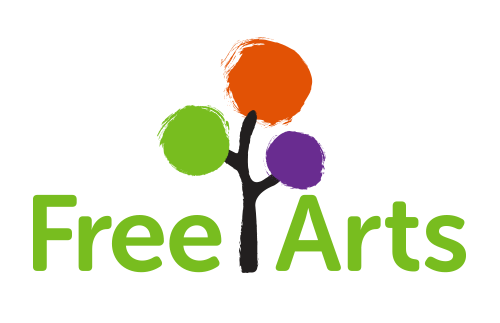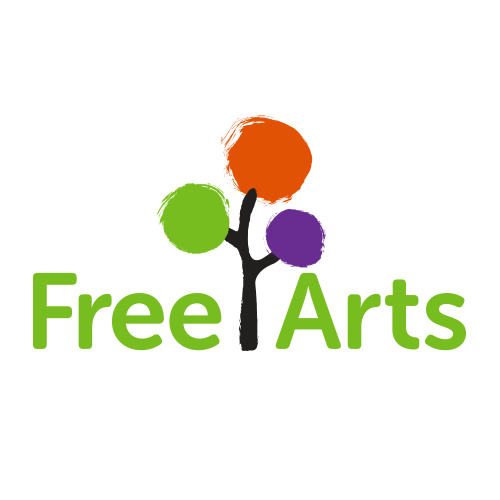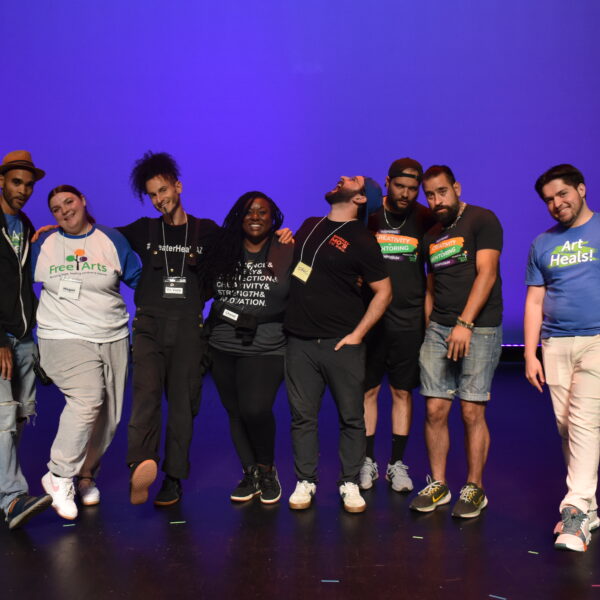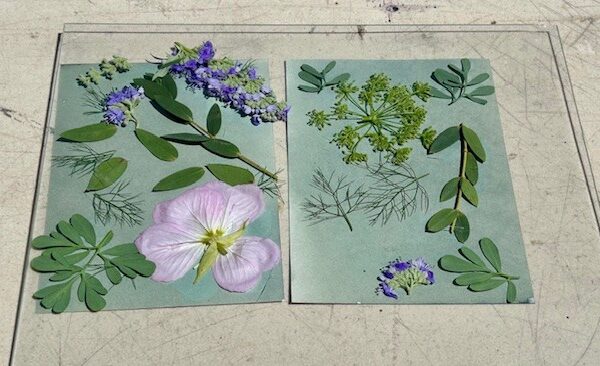By: Jessica Flowers, Program Director
Free Arts for Abused Children of Arizona exists to transform children’s trauma to resilience. Trauma, including abuse, neglect, and homelessness can cause major changes to the brains and bodies of developing children. Damaging effects can include behavioral and mental challenges, chronic disease, and early death.
Resilience, in its simplest definition, is the ability to overcome hardship. By cultivating resilience, children can more effectively process past trauma and learn how to “bounce back” from future challenges.
Free Arts developed a program model built on significant research from the Harvard Center on the Developing Child,which revealed that two of the most important factors in promoting resilience in children are opportunities to build skills and the presence of strong relationships.
Harvard summarizes its model using the equation:
SKILLS + RELATIONSHIPS = RESILIENCE
Free Arts has adapted the Harvard model using the equation:
ART + MENTORS = RESILIENCE
At Free Arts, participating children learn new skills by engaging in the arts. Many of these skills are art-based; learning how to mix colors, make rhythms, or project their voice. Children also learn and practice life skills including teamwork, leadership, and decision-making. In several programs, children get to showcase these skills during public performances or exhibits.
“Age-appropriate, health-promoting activities can significantly improve the odds that an individual will recover from stress-inducing experiences”.
– Harvard Center of the Developing Child

Relationships in Free Arts programs are built between the children and their volunteer mentors and between the children and their peers. Often, Free Arts volunteer mentors are the only unpaid adults in the lives of the children they work with, and children love seeing their mentors at a variety of Free Arts programs and events. The Free Arts group mentoring model also allows children to build strong relationships with other children they live with as well as children from other agencies and circumstances.
In the Free Arts summer camp program, more than 70 children each week, all from foster care group homes, foster families, or shelter programs come together to explore art. Along the way, these children form strong bonds with one another that many often describe as being “like a family”. Free Arts participants are all invited to return as a part of the Alumni program, and many have found a sense of belonging among their fellow Alumni and caring adults.
“These relationships provide the personalized responsiveness, scaffolding, and protection that buffer children from developmental disruption. They also build key capacities—such as the ability to plan, monitor, and regulate behavior—that enable children to respond adaptively to adversity and thrive. This combination of supportive relationships, adaptive skill-building, and positive experiences is the foundation of resilience.”
– Harvard Center of the Developing Child

Free Arts is grateful to offer children who have experienced the stress of trauma and adverse childhood experiences the opportunity to increase skills, strengthen relationship, and build resilience.
For more information on the science of resilience please visit:
For more information on how you can be part of this equation please visit:



